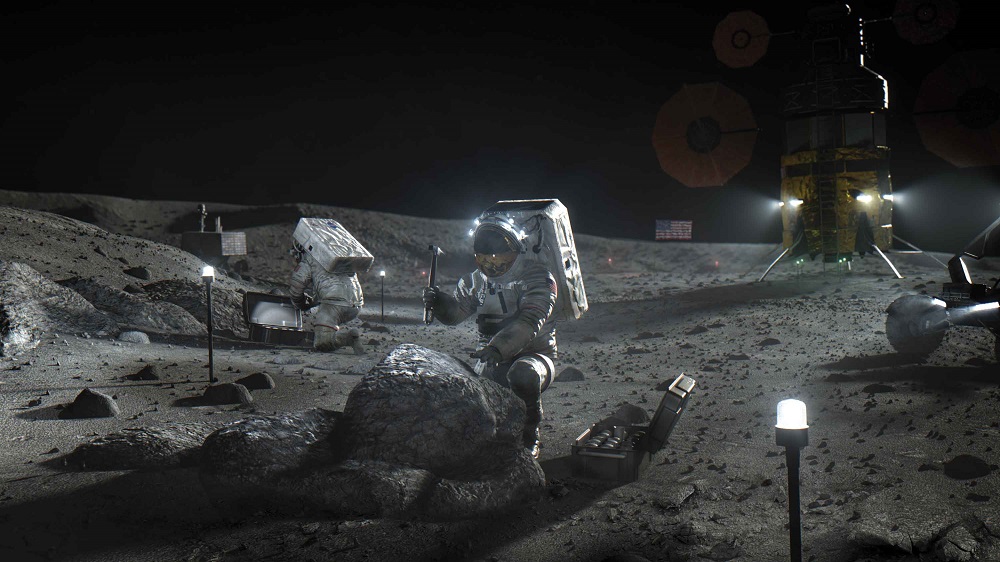In early August, Russian media reported that the country’s space agency, Roscosmos, had yet to order new spacesuits for its cosmonauts to replace the aging suits required for space station spacewalks. Dmitry Rogozin, head of Roscosmos, turned to Twitter to refute the claims, saying that cosmonauts “will not have to perform spacewalks in their underwear.”
American astronauts have similar concerns. The same day Rogozin was tweeting about spacesuits, NASA’s inspector general issued a report on the agency’s program to develop new spacesuits for both ISS spacewalks and Artemis lunar missions. The usual one-two punch of technical problems and funding shortfalls led the inspector general to conclude that the suits won’t be ready for the Artemis 3 lunar landing mission until at least April 2025, missing the 2024 goal for the mission.
That produced a spate of headlines that NASA’s lunar return will be delayed by spacesuits. But the inspector general noted that’s not the only problem, citing long-running issues with the Space Launch System and Orion. “Moreover, delays related to lunar lander development and the recently decided lander contract award bid protests will also preclude a 2024 landing,” the report stated.
The conclusion of the bid protest July 30, when the Government Accountability Office upheld NASA’s decision to award a single lander contract to SpaceX, provides an opportunity for NASA to move ahead with plans to overhaul, or at least tweak, the Artemis program. NASA for months used the protest as an excuse not to talk in detail about Artemis, saying its hands were tied by the rules regarding such protests. The GAO has now untied those hands.
In a statement the day the GAO rejected the protests, NASA announced it will provide an update “as soon as possible” on its plans for the Artemis program. “Importantly,” the agency said, “the GAO’s decision will allow NASA and SpaceX to establish a timeline for the first crewed landing on the moon in more than 50 years.”
That suggests NASA is reconsidering the 2024 goal, which makes sense. While moving up the date of a human lunar landing from 2028 to 2024 may have been well intentioned, providing the urgency needed to make decisions and more forward, budgets that have not kept pace with projections and inevitable future technical problems make it unlikely NASA can make up for lost time and get everything in place to land humans on the moon in 2024.
Asked about schedules at a July 29 press conference, NASA Administrator Bill Nelson again brought up the GAO protest that he claimed limited what he could say on the matter, but also acknowledged that “we’ve lost some time” because of that protest.
He then fell back on one his most frequent phrases. “Space is hard,” he said. “There’s always things that happen, especially when you’re developing new technology and going further and further.” He declined to either affirm or reject the 2024 date, saying only, “We’re going when it’s safe.”
The only question now, it seems, is by how much to stretch out the schedule for Artemis. Too little and you run the risk of having to delay it again; too much and you risk losing the urgency and momentum built up over the last couple of years. Those may be the calculations the agency’s leadership is making now.
There may be bigger changes in the works, such as selecting a second company to develop a lunar lander, something NASA has supported but currently lacks the funding to pursue. An extended schedule could provide more time to get a second lander funded and in development or adjust when and how the lunar Gateway is developed.
That revised schedule would also ensure that NASA gets all the elements needed for Artemis back in sync. There’s no use to rush to develop a lunar lander, or landers, if the spacesuits the astronauts on board would wear won’t be ready in time. Astronauts would be well advised not to attempt to walk on the moon in their underwear.

Jeff Foust writes about space policy, commercial space, and related topics for SpaceNews. His Foust Forward column appears in every issue of the magazine. This column ran in the August 2021 issue.
